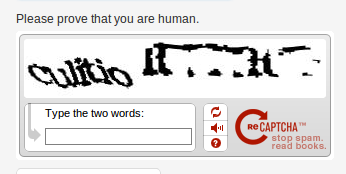Captchas are a terrible user experience.

I’ve seen more captchas like this than I can count.
They put the onus of spam protection on the visitor filling out the form and, personally, show me how lazy you are as a site administrator. There are a hundred different ways you can protect your site from spam on the server side – why would you forego these options and force your visitors to jump through additional hoops?
Furthermore, captchas can negatively impact the overall user experience on your site for some. They can actually hurt your conversion rate for others.
Instead of using a captcha, let’s look at two passive things you can add to a form to reduce spam. [Read more…]